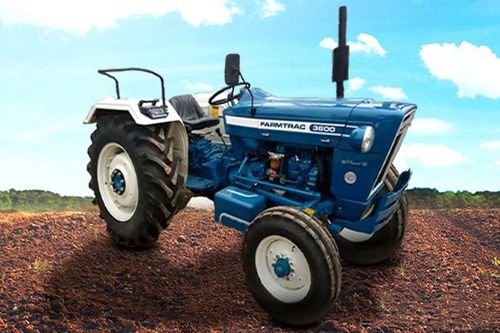Ad
Ad
Post-Harvest Storage Explained: An In-Depth Look

Most of the crops are stored by the farmers in different ways in homes. Storage of the crop after harvesting is the most important task. Do not stock the crop in humid places because, due to moisture, there is a possibility of diseases like termites and other bacteria in the crop. If the crop is stocked in sacks, lay wooden planks, mats, etc., on the floor below so that the crop can be safe.
Post-Harvest Crop Storage Techniques
Once the crops are harvested, farmers typically set aside a portion for seed purposes and another portion for personal consumption. The crops reserved for personal use are often stored in drums or other sealed containers to ensure they remain fresh for future use.
Safety Measures for Crop Storage-
Pesticides are typically applied to store seeds to ensure their preservation for future planting. Many farmers opt to store their crops in sacks or jute bags for safekeeping.
Ensure Crop Drying in Sunlight Prior to Storage-
Crops are mostly harvested using machinery, which often leaves the crop with some moisture. Storing such crops can potentially lead to crop spoilage. Therefore, it’s crucial to allow the harvested crop to dry under the sun for several days to ensure all moisture is eliminated before storage.
Ensure Thorough Grain Cleaning-
During the harvesting process, grains may break or become dusty, and unwanted straws may be mixed in, diminishing the crop’s quality. To safeguard the crop from issues such as fungal infections, it’s essential to clean it meticulously before storage.
Store the Crop in Fresh Bags-
Avoid storing the crop in previously used bags, as this can increase the risk of crop spoilage and disease. If farmers choose to reuse old bags, they should be thoroughly cleaned to prevent any potential disease in the crop.
Avoid Placing Stored Crop Bags Against the Wall-
Farmers should refrain from placing the bags containing the stored crop next to the wall. This is because walls can become damp or moist during the rainy season, which could harm the crop.
Use Neem Powder for Pest Control in Crop Storage-
Occasionally, stored crops can become infested with pests such as mites, which can damage the crop from within. To prevent these pests, farmers often use neem powder. This helps in ensuring the safety of the stored crop.
When storing crops in bags, it’s common practice to lay wooden planks or mats on the floor beneath them to ensure their safety. It’s also crucial to thoroughly clean the storage area with a malathion solution.
Remember, it’s essential to store crops in a clean environment. Prior to storing the crops, prepare a solution of malathion mixed with water and use it to clean the storage area. This practice significantly reduces the risk of crop spoilage.
Storing crops is a task of great importance. A variety of scientific methods are employed to ensure the safe storage of crops. These techniques help protect the crops from fungi, pests, and other potential threats. However, due to a lack of comprehensive knowledge about storage techniques, sometimes more than half of the crop can be lost.
Preserving the Crop with Strands During Storage
When farmers store their crops, it’s crucial to shield the crop from moisture, insects, and rodents. Excessive humidity in the crop can foster the growth of microorganisms. Hence, proper storage is essential to ensure the crop’s long-term protection.
The primary purpose of storage is to safeguard the crops for an extended period. Small-scale farmers typically grow crops for personal use, while large-scale farming is primarily for commercial purposes. Storage is carried out to cater to future requirements. Crops are predominantly stored to mitigate the effects of natural disasters. It’s important to have a suitable location for crop storage. One key factor to remember during storage is to ensure the crop is free from moisture, as moisture can lead to the spoilage of the entire crop.
Features & Articles
Monsoon Tractor Maintenance Guide: Keep Your Tractor Safe and Productive in Rainy Season
Follow these easy monsoon maintenance tips to protect your tractor from rust, breakdowns, and damage during rainy season....
17-Jul-25 11:56 AM
Read Full NewsMassey Ferguson vs Powertrac: Key Differences Every Farmer Must Know in 2025
Compare Massey Ferguson and Powertrac tractors in 2025 for performance, price, features, comfort, and warranty to choose wisely....
11-Jul-25 06:00 AM
Read Full NewsTop 5 Mileage-Friendly Tractors in India 2025: Best Choices for Saving Diesel
Discover the top 5 best mileage tractors in India 2025 and learn 5 easy diesel-saving tips to boost your farm savings....
02-Jul-25 11:50 AM
Read Full NewsTop 5 John Deere Tractors in India 2025: Full Comparison of Features, Performance, and Pricing
Explore top 5 John Deere tractors in 2025 with features, performance, prices, and full comparison for Indian farmers....
19-Jun-25 12:11 PM
Read Full NewsTop 5 Swaraj Tractors for Indian Farmers in 2025
Explore the top 5 Swaraj tractors in India, offering power, durability, and performance for every type of Indian farmer....
02-Jun-25 10:06 AM
Read Full NewsThinking of Buying a Second Hand Tractor? Read These Top 10 Important Tips
Explore key tips to inspect the engine, tyres, brakes, and more before buying a second hand tractor in India....
14-Apr-25 08:54 AM
Read Full NewsAd
Ad
As featured on:


Registered Office Address
Delente Technologies Pvt. Ltd.
M3M Cosmopolitan, 12th Cosmopolitan,
Golf Course Ext Rd, Sector 66, Gurugram, Haryana
pincode - 122002




















